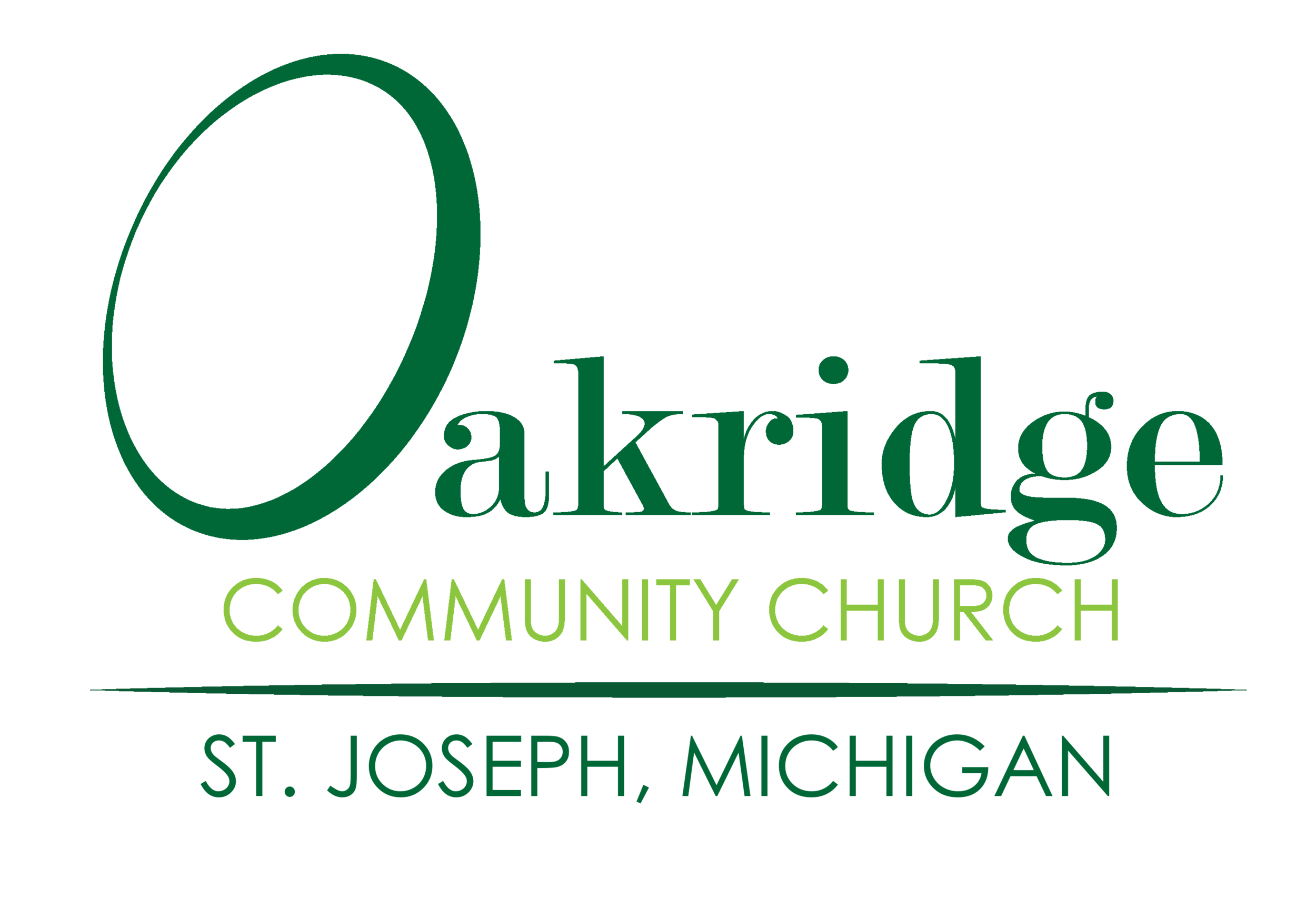The Need for Discernment... and Humility
As I share some thoughts in this and a follow-up blog, I have a confession to make as we begin. There is a certain amount of “fear and trembling” as I write. The reason behind that admission is because we are dealing with a tough, humbling, but important topic that has become very public, one that cannot simply be ignored or overlooked.
As we begin, Matthew 5:3 comes to mind. In Jesus’ “Sermon on the Mount”, the Lord reminds us that “Blessed are the poor in spirit, for theirs is the kingdom of heaven.” A person who is “poor in spirit” recognizes their desperate need for God in every area of their life.
As fallible people, we need the guidance of our Lord as we navigate life’s journey, recognizing our dependance upon Him. These thoughts are so true as I write knowing that I am far from perfect and have no desire to be judge and jury over someone’s life. That though does not mean that we must stay silent and overlook things either. Now, on to the topic at hand.
Over the last several years, many individuals, ministries, churches, and organizations, have faced accusations over their handling of situations, circumstances, and people. From financial mismanagement, to bullying and controlling people, to personal misconduct, there have been articles written, conversations made known, documents publicized, pointing out some potential major problems within some of these groups.
In some cases, to be honest, the supposed problems were nothing more than a different viewpoint regarding a particular issue or situation. For instance, Christians have been vocal on both sides when it comes to whether churches should follow all the mandates states and cities are implementing regarding church gatherings, the wearing of masks, etc. We have read and listened to debates over this in places such as California and Washington D.C.
These are not the types of things we are going to address in this blog. Having said that, we do need to be honest and sensitive when it comes to things that are being said, for as we know, words can either destroy or build up. Neither this blog nor the one to follow will publicize people’s nor organizations’ names. Our focus is to know how we should respond Biblically when we hear or read things that are less than flattering about a ministry.
To be honest, what makes it hard for us is when a ministry that has impacted our life in positive ways is being publicly questioned, our first response is usually to go to their defense. Or to put on blinders, refusing to accept the possibility that maybe what is being said is true, that they have mismanaged their finances, mistreated people, etc. As we shall see further in this blog, how we respond is important.
Sadly, in some cases, people have suffered because someone lied. Some of you may have experienced someone simply being out to get you and in doing so they fabricated things. I knew of a pastor who was falsely accused of something, and the person who did this admitted to doing so. By the time they told the truth, this minister had already resigned. His name was already being dragged through the mud.
This has happened to organizations and individuals before. That is why we who serve need to have boundaries in place along with accountability structures. But that does not always stop untruth from being told. The issue is how we respond to things being said that are hard to fathom.
Accusations can be leveled by anyone at any time and usually there is an automatic response that the person or organization must obviously be guilty because someone was willing to publicly accuse them. That, though, is not always the case, as we just noted.
Unfortunately, there have been times that the evidence indeed showed a major problem within an organization. There was no way to deny it. In one instance, a leader of an organization spent $15,000 on a safari and claimed it as a ministry expense. They freely spent money out of a fund on all kinds of lavish things, with basically no accountability in the handling of hundreds of thousands of dollars.
As a pastor, I cringe at this. No matter the amount of money an organization brings in, financial accountability must be in place beyond one or two people. Transparency is important. Now that we have framed where we are headed, how should we respond when we hear of things being said that are less than flattering when it comes to a church, organization, or individual. In the rest of this blog and the one that follows, we will attempt to address this from a Biblical perspective.
First, do not jump to conclusions, and choose to not go on the defensive or the offensive as a response. Depending on how we feel about a certain organization, we can, if not careful, respond in one of these ways.
Some people automatically jump to conclusions. As noted above, if someone says something publicly, people will say that it must obviously be true. If we have been helped by a ministry in our lives that is now being rocked with accusations, we assume that what is being said must be false.
As believers, we are not to simply react out of emotions or loyalty. We must think and act Biblically when it comes to dealing with people and situations.
For example, in Gal. 2:11-21, Paul confronted Peter over a serious issue in which the facts showed that it had to be done. When you read the account in Galatians, it may not seem like much, but it was important, because Peter’s treatment of others (showing favoritism to some who did not teach the doctrine of grace) was causing major problems with others. And it was a public problem that could not simply be overlooked just because Peter was involved.
Paul’s loyalty, first and foremost, was to God. Ours must also be. That also means a willingness to not go on the defensive or offensive when something is said. Step back, pray for those accusing and being accused, and do our diligence when it comes to knowing the truth.
We do this, not so we can gossip, deride, or defend a ministry, but because we know that God wants us to be people of truth, people who defend Biblical Christianity, not just the beliefs of the historic Christian faith, but the call to live holy lives as well.
This is hard to write because none of us are infallible. That leads to a second thought that we will conclude with and then in the next blog, continue.
A second thing to keep in mind is that we must remember that we must walk in humility and not take pleasure in seeing another person or ministry fall. Every person struggles with issues in their life. Followers of Christ, because of their identity with Christ in His death, burial, and resurrection, do not have to allow sin to control their life. Sin is what leads to all problems.
That is the clear teaching of Romans 6. In this, it must also be remembered that God holds us responsible for our actions, thus we cannot offer excuses for actions that are contrary to what Scripture teaches.
We also know that sin still dwells within us, and Galatians 5 notes this as the Spirit-flesh conflict. We also know that when we are controlled by the Holy Spirit, trusting Him, walking humbly before God in trust and faith, allowing Him to lead our lives, we will show to others what a Christian should be like.
In fact, there is a sober warning in Scripture regarding how those who claim to believe in Christ are to live. We do sin, as a passage such as 1 John 2:1 reminds us of and can be thankful that we have Jesus on our side.
In the same letter, in 1 John 3 the author, John, also reminds us that a person who claims to believe in Jesus, yet lives in persistent sin, having no concern or remorse for their actions, is not a true child of God. He is speaking of a person’s lifestyle, one predicated on living for self with no concern for what God thinks. Sadly, this is true in our world today.
This is not about perfection. It is, though, about living for Christ in all we do and say. There are many pressures around us, and the enemy is at work to destroy us and God’s work in the world. 1 Peter 5:8 warns us that he is roaming about looking to see who he can devour, who he can ruin. That is one reason why we must, as followers of Jesus, be diligent in our faith and pray, encourage, and confront, in love, one another when needed.
We need to be discerning. We cannot ignore something simply because we do not want to believe it. Paul did not do that with Peter. He dealt with a difficult situation. But he did not, in confronting Peter, boast in setting things straight. Paul knew his weaknesses as well. That, though, did not stop him, nor should it stop us, from gathering the facts, at the same time seeking to honor God in how we respond to things we hear and read.
The reality is there are cases, as we have said, in which the evidence clearly points to someone who has abused their ministry position in various ways. In John’s third letter, he calls out a man named Diotrephes, who has been wreaking havoc in the church. He has taken control and is bullying and intimidating others. John is clear. The facts were in, and he would deal with this situation when he was present.
But let me make this clear. There is no place for delighting in someone’s fall or stumble. Even when sin must be dealt with, it is always done in humility, recognizing that we could fall as well. At the same time, we must be honest enough when the evidence is in to admit that, even if we have been blessed by a particular organization or individual, that they may have been wrong in a particular situation. Just something to think about. Stay focused on Jesus.

